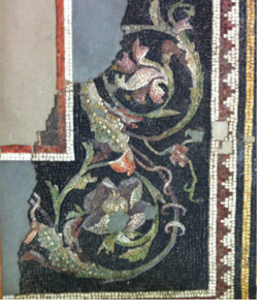January 28, 2013 at 3:44 pm
Core classes extensively explore poetry. Here is an essay on the topic of memorizing poetry - whether we should do it, and if so, why and how? An excerpt:
Anyone equipped with a smartphone—many of my friends would never step outdoors without one—commands a range of poetry that beggars anything the brain can store. Let’s say it’s a gorgeous afternoon in October. You’re walking through a park, and you wish to recall—but can’t quite summon—the opening lines of Keats’ “To Autumn.” With a quick tap-tap-tap, you have it on your screen. You’re back in the nineteenth century, but you’re also in the twenty-first, where machine memory regularly supplants and superannuates brain memory.
Find the full essay at http://nyr.kr/XN1xoS
By mdimov
|
Posted in Academics, Curriculum, Great Ideas, Great Questions
|
Tagged access, Keats, learn, memorize, poetry, recite, technology, why?
|
January 28, 2013 at 3:18 pm
The Core presents a quote on the death of stars:
In the later red giant phase, the Core will shrink further and heat up to over 100 million Kelvin.
~Dr. Mark Jonas
By mdimov
|
Posted in Academics, Core Lecturers, Quotes
|
Tagged CC105, Core, fun, heat, humor, red giant, Science, sciences, stars
|
January 25, 2013 at 4:35 pm
The class of CC202 delves into Jane Austen's Pride and Prejudice. Here the Core presents an article looks at that work from another perspective- politics. Here is an excerpt:
The Victorians fostered the idea of Austen as the retiring spinster who confined her novels to the small canvas of village life. In more recent times she has been reinvented as, among other things, a feminist writer, yet it has been difficult to shake off the myth of sequestered, cosy “Aunt Jane”, devoted to domestic and romantic issues and studiously ignoring her historical and political context.
In fact, Austen’s novels scrupulously avoid the clichés of romantic fiction... Nor is it true that the novels ignore their historical context. Austen was no stranger to turbulent times. Most of her adult life was lived through the French revolutionary and Napoleonic wars. She had two beloved brothers in the navy and one in the army. Her cousin’s husband was guillotined in the French Revolution. She took for granted that her readers would understand the context of her work. If we read Pride and Prejudice carefully, we can see that this is an essential element of the novel. The historical context is there for all to see but because we don’t share it we tend not to notice it.
The full article can be found here: http://on.ft.com/10TM8JT
By mdimov
|
Posted in Academics, Curriculum, Great Ideas, Great Questions
|
Tagged article, CC202, context, history, interesting, Jane Austen, militia, novel, politics, poverty, prejudice, pride, romantic
|
January 23, 2013 at 3:08 pm
Relating to Jane Austen's Pride and Prejudice, which is studied this semester by CC 202, is today's analect:
I declare after all there is no enjoyment like reading! How much sooner one tires of any thing than of a book! -- When I have a house of my own, I shall be miserable if I have not an excellent library.
By mdimov
|
Posted in Academics, Analects, Curriculum
|
Tagged books, CC202, enjoyment, Jane Austen, joy, library, pride and prejudice, reading
|
January 23, 2013 at 2:54 pm

Renaud Capuçon, who joins the orchestra for Sibelius's Violin Concerto
The Core is offering 15 free tickets for the Boston Symphony Orchestra performance on Thursday February 7th, at 8:00 PM, in the Boston Symphony Hall. From http://bit.ly/VWRVKL:
The eminent German conductor Christoph von Dohnányi leads three masterpieces from the heart of the orchestral repertoire. The program begins with Brahms's earliest orchestral masterpiece, his Variations on a Theme by Haydn, a prime example of theme-and-variations form that demonstrates the Romantic-era composer's fidelity to the Classical tradition. French violinist Renaud Capuçon, in his BSO debut, then joins the orchestra for Sibelius's Violin Concerto, a pinnacle of the concerto repertoire. The program concludes with Beethoven's Symphony No. 5.
For more information, visit the link above.
By mdimov
|
Posted in Activities, Announcements, Core in the City, Events
|
Tagged beethoven, brahms, city, event, fun, music, orchestra, sibelius, violin
|
January 23, 2013 at 2:39 pm

Unknown, Rinceaux and Meander, 1st Century C.E. Mosaic (stone and glass tesserae, mortar), 73 in. x 28 in. Gift of the Committee of Excavation, Antioch and Vicinity (given in appreciation of Prof. W. A. Campbell's work), 1933.10
From January 30 – July 7, 2013, the upcoming Festina Lente exhibition will offer an unconventional behind-the-scenes opportunity to survey the Greek and Roman holdings in the Davis Museum’s permanent collections. Featuring vases and vessels of all sorts and designs, relief portraits and standing figures, mosaics, coins and jewelry, human and animal forms, the scope of the collection reveals tremendous vitality of form and function rendered in glass, terracotta, clay, metal, and stone.
The exhibition and programs illuminate the particular challenges facing museum antiquities collections, including questions of attribution, provenance, and authenticity; the science of investigation; changing strategies and shifting aesthetics in restoration; the function of and framework for managing fragmentary objects; the search for traces in abraded and eroded surfaces; and trends in collecting over time.
Core students are encouraged to dip their toes and visit this exhibition, as many of the works and ideas presented there will relate to, and may elaborate upon, the works studied in the Core.
For more information: contact Davis Museum and Cultural Center - Wellesley College, 106 Central St., Wellesley, MA, 02482, (781) 283-2051, or visit http://bo.st/XxVMdU
By mdimov
|
Posted in Activities, Announcements, Art, Events
|
Tagged Art, authenticity, event, exhibition, Greek, museum, preservation, restoration, roman, Science, upcoming
|


